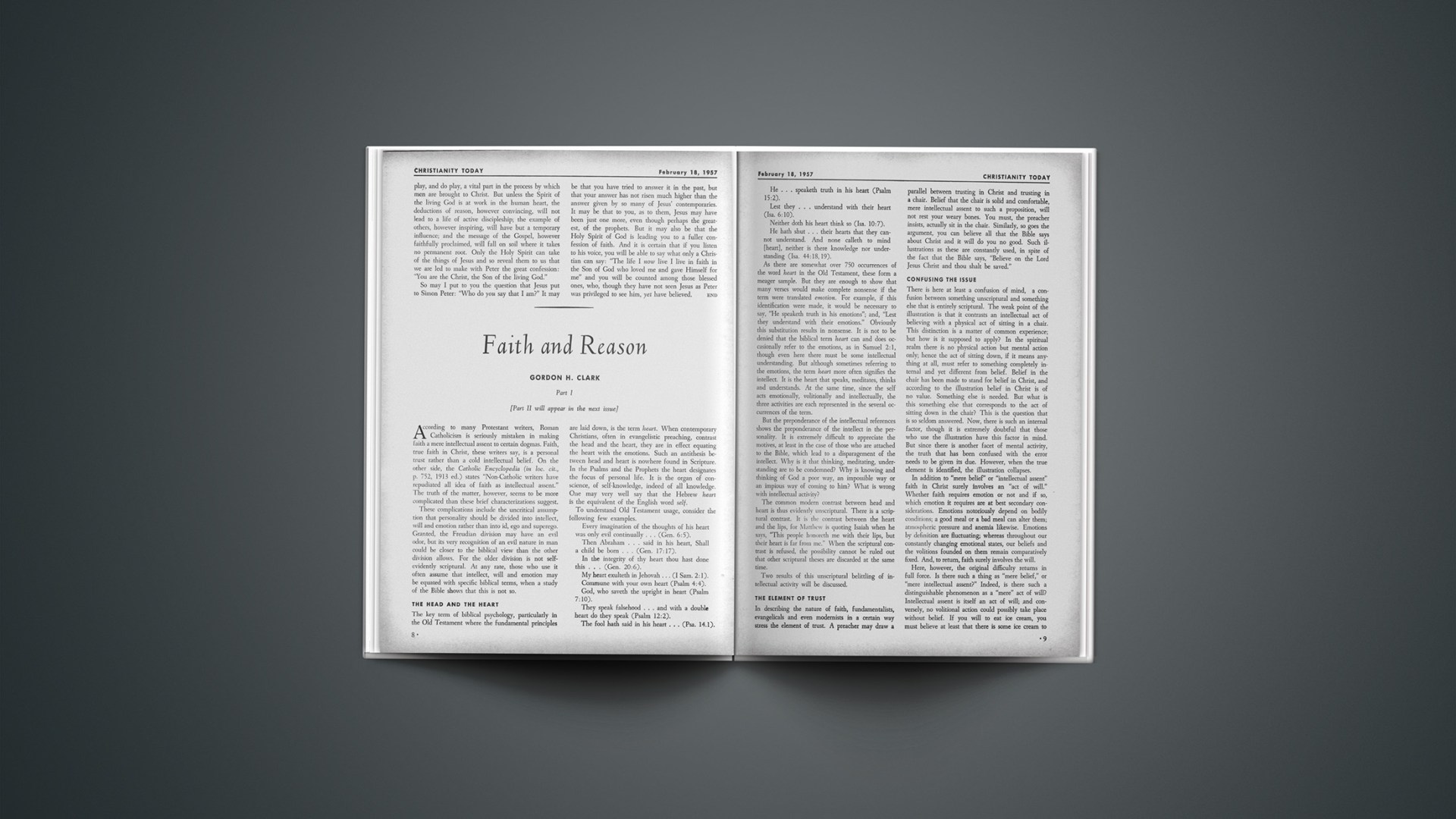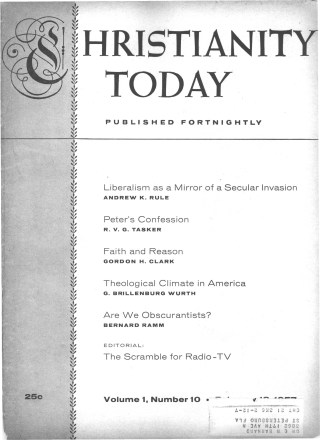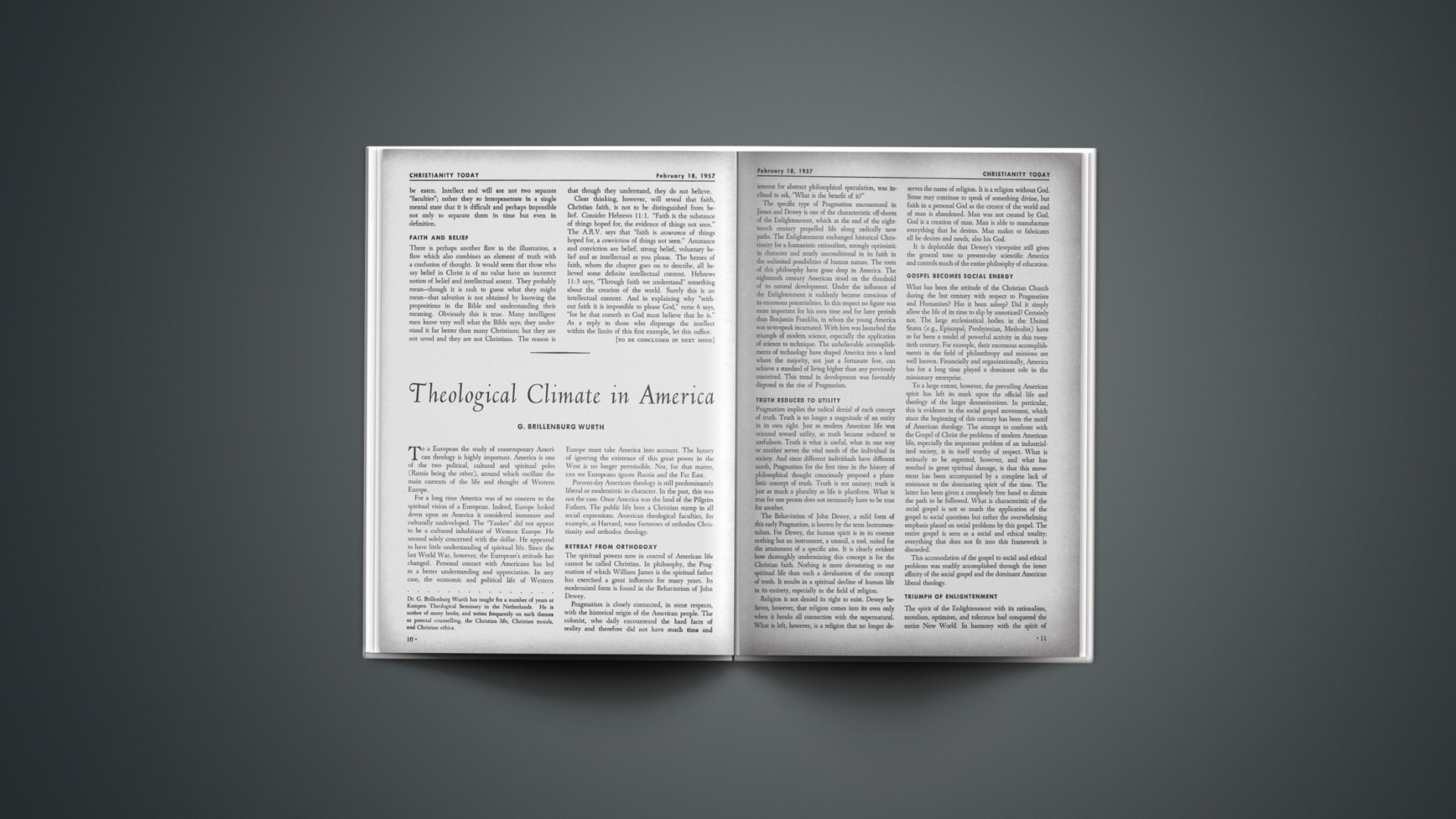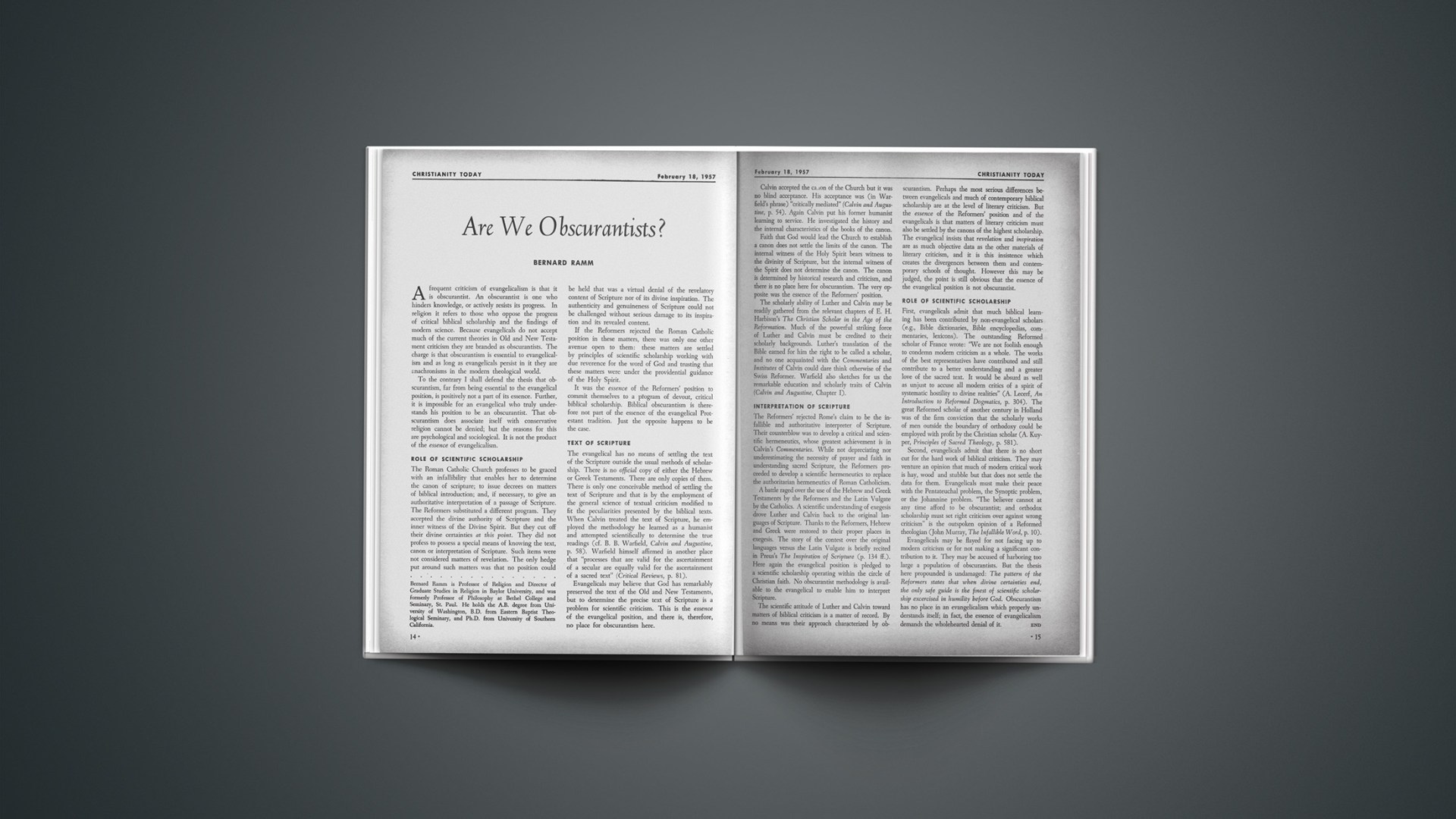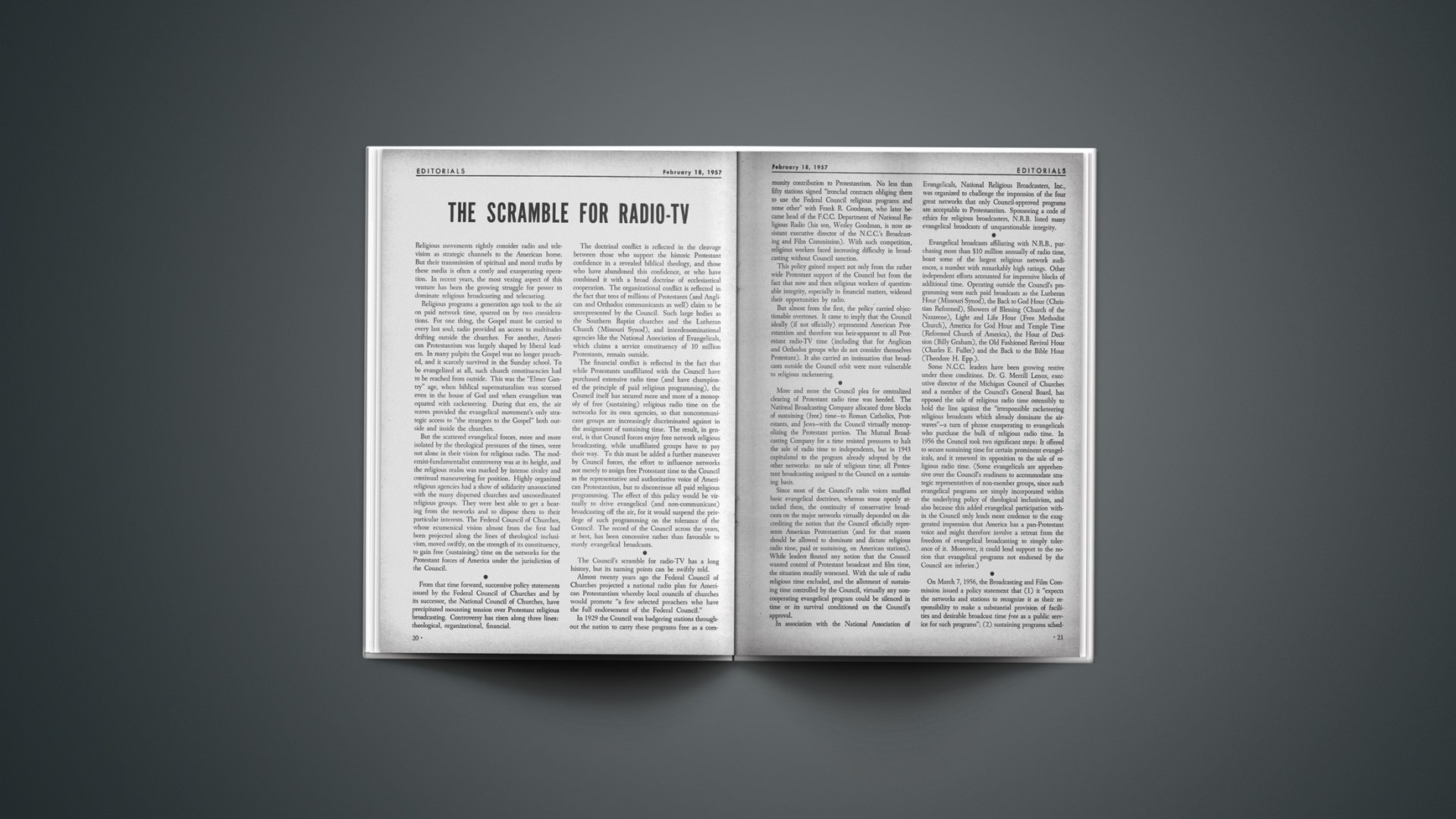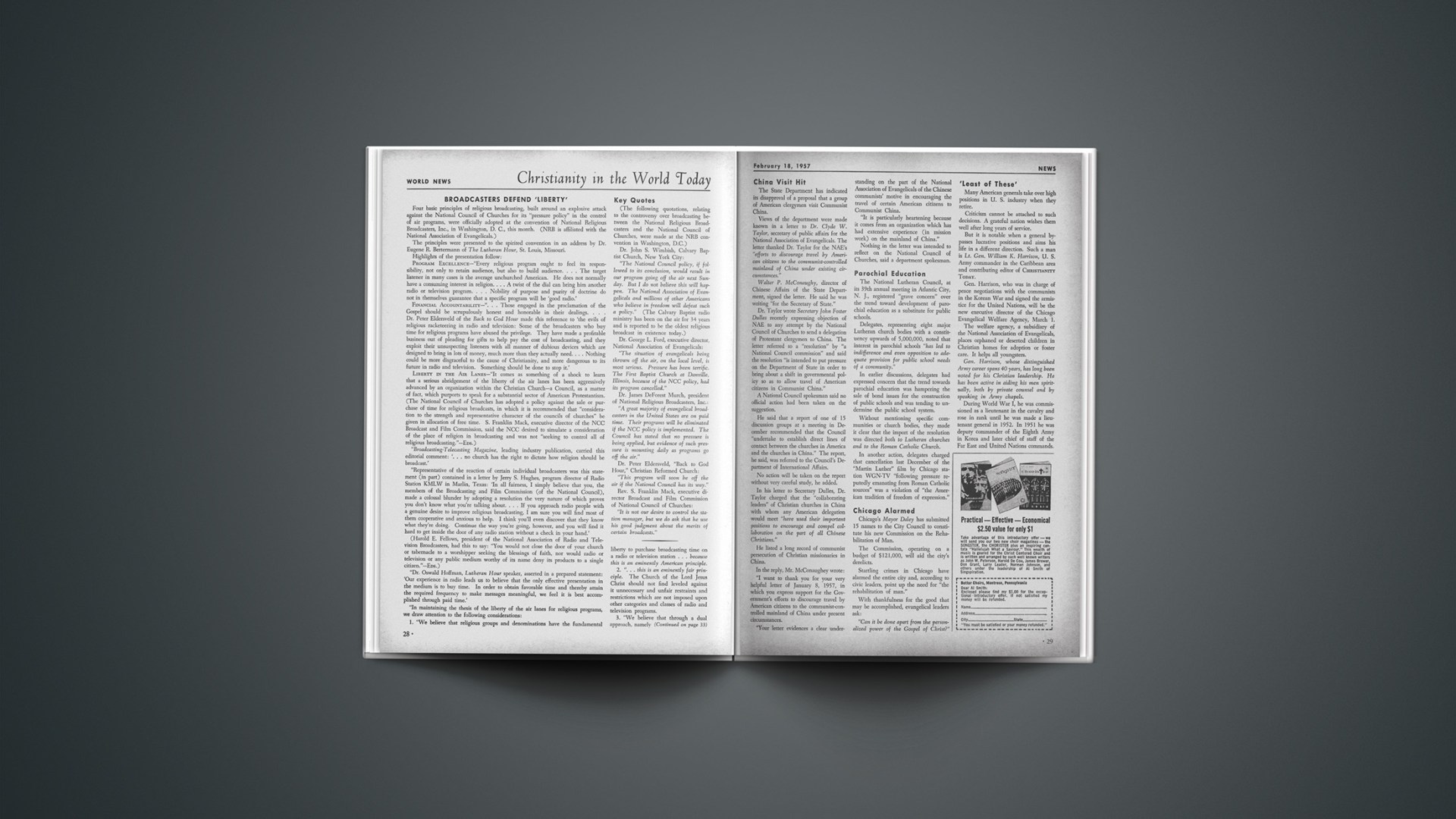Part 1
According to many Protestant writers, Roman Catholicism is seriously mistaken in making faith a mere intellectual assent to certain dogmas. Faith, true faith in Christ, these writers say, is a personal trust rather than a cold intellectual belief. On the other side, the Catholic Encyclopedia (in loc. cit., p. 752, 1913 ed.) states “Non-Catholic writers have repudiated all idea of faith as intellectual assent.” The truth of the matter, however, seems to be more complicated than these brief characterizations suggest.
These complications include the uncritical assumption that personality should be divided into intellect, will and emotion rather than into id, ego and superego. Granted, the Freudian division may have an evil odor, but its very recognition of an evil nature in man could be closer to the biblical view than the other division allows. For the older division is not self-evidently scriptural. At any rate, those who use it often assume that intellect, will and emotion may be equated with specific biblical terms, when a study of the Bible shows that this is not so.
The Head And The Heart
The key term of biblical psychology, particularly in the Old Testament where the fundamental principles are laid down, is the term heart. When contemporary Christians, often in evangelistic preaching, contrast the head and the heart, they are in effect equating the heart with the emotions. Such an antithesis between head and heart is nowhere found in Scripture. In the Psalms and the Prophets the heart designates the focus of personal life. It is the organ of conscience, of self-knowledge, indeed of all knowledge. One may very well say that the Hebrew heart is the equivalent of the English word self.
To understand Old Testament usage, consider the following few examples.
Every imagination of the thoughts of his heart was only evil continually … (Gen. 6:5).
Then Abraham … said in his heart, Shall a child be born … (Gen. 17:17).
In the integrity of thy heart thou hast done this … (Gen. 20:6).
My heart exulteth in Jehovah … (1 Sam. 2:1).
Commune with your own heart (Psalm 4:4).
God, who saveth the upright in heart (Psalm 7:10).
They speak falsehood … and with a double heart do they speak (Psalm 12:2).
The fool hath said in his heart … (Psa. 14:1).
He … speaketh truth in his heart (Psalm 15:2).
Lest they … understand with their heart (Isa. 6:10).
Neither doth his heart think so (Isa. 10:7).
He hath shut … their hearts that they cannot understand. And none calleth to mind [heart], neither is there knowledge nor understanding (Isa. 44:18, 19).
As there are somewhat over 750 occurrences of the word heart in the Old Testament, these form a meager sample. But they are enough to show that many verses would make complete nonsense if the term were translated emotion. For example, if this identification were made, it would be necessary to say, “He speaketh truth in his emotions”; and, “Lest they understand with their emotions.” Obviously this substitution results in nonsense. It is not to be denied that the biblical term heart can and does occasionally refer to the emotions, as in 1 Samuel 2:1, though even here there must be some intellectual understanding. But although sometimes referring to the emotions, the term heart more often signifies the intellect. It is the heart that speaks, meditates, thinks and understands. At the same time, since the self acts emotionally, volitionally and intellectually, the three activities are each represented in the several occurrences of the term.
But the preponderance of the intellectual references shows the preponderance of the intellect in the personality. It is extremely difficult to appreciate the motives, at least in the case of those who are attached to the Bible, which lead to a disparagement of the intellect. Why is it that thinking, meditating, understanding are to be condemned? Why is knowing and thinking of God a poor way, an impossible way or an impious way of coming to him? What is wrong with intellectual activity?
The common modern contrast between head and heart is thus evidently unscriptural. There is a scriptural contrast. It is the contrast between the heart and the lips, for Matthew is quoting Isaiah when he says, “This people honoreth me with their lips, but their heart is far from me.” When the scriptural contrast is refused, the possibility cannot be ruled out that other scriptural theses are discarded at the same time.
Two results of this unscriptural belittling of intellectual activity will be discussed.
The Element Of Trust
In describing the nature of faith, fundamentalists, evangelicals and even modernists in a certain way stress the element of trust. A preacher may draw a parallel between trusting in Christ and trusting in a chair. Belief that the chair is solid and comfortable, mere intellectual assent to such a proposition, will not rest your weary bones. You must, the preacher insists, actually sit in the chair. Similarly, so goes the argument, you can believe all that the Bible says about Christ and it will do you no good. Such illustrations as these are constantly used, in spite of the fact that the Bible says, “Believe on the Lord Jesus Christ and thou shalt be saved.”
Confusing The Issue
There is here at least a confusion of mind, a confusion between something unscriptural and something else that is entirely scriptural. The weak point of the illustration is that it contrasts an intellectual act of believing with a physical act of sitting in a chair. This distinction is a matter of common experience; but how is it supposed to apply? In the spiritual realm there is no physical action but mental action only; hence the act of sitting down, if it means anything at all, must refer to something completely internal and yet different from belief. Belief in the chair has been made to stand for belief in Christ, and according to the illustration belief in Christ is of no value. Something else is needed. But what is this something else that corresponds to the act of sitting down in the chair? This is the question that is so seldom answered. Now, there is such an internal factor, though it is extremely doubtful that those who use the illustration have this factor in mind. But since there is another facet of mental activity, the truth that has been confused with the error needs to be given its due. However, when the true element is identified, the illustration collapses.
In addition to “mere belief” or “intellectual assent” faith in Christ surely involves an “act of will.” Whether faith requires emotion or not and if so, which emotion it requires are at best secondary considerations. Emotions notoriously depend on bodily conditions; a good meal or a bad meal can alter them; atmospheric pressure and anemia likewise. Emotions by definition are fluctuating; whereas throughout our constantly changing emotional states, our beliefs and the volitions founded on them remain comparatively fixed. And, to return, faith surely involves the will.
Here, however, the original difficulty returns in full force. Is there such a thing as “mere belief,” or “mere intellectual assent?” Indeed, is there such a distinguishable phenomenon as a “mere” act of will? Intellectual assent is itself an act of will; and conversely, no volitional action could possibly take place without belief. If you will to eat ice cream, you must believe at least that there is some ice cream to be eaten. Intellect and will are not two separate “faculties”; rather they so interpenetrate in a single mental state that it is difficult and perhaps impossible not only to separate them in time but even in definition.
Faith And Belief
There is perhaps another flaw in the illustration, a flaw which also combines an element of truth with a confusion of thought. It would seem that those who say belief in Christ is of no value have an incorrect notion of belief and intellectual assent. They probably mean—though it is rash to guess what they might mean—that salvation is not obtained by knowing the propositions in the Bible and understanding their meaning. Obviously this is true. Many intelligent men know very well what the Bible says; they understand it far better than many Christians; but they are not saved and they are not Christians. The reason is that though they understand, they do not believe.
Clear thinking, however, will reveal that faith, Christian faith, is not to be distinguished from belief. Consider Hebrews 11:1. “Faith is the substance of things hoped for, the evidence of things not seen.” The A.R.V. says that “faith is assurance of things hoped for, a conviction of things not seen.” Assurance and conviction are belief, strong belief, voluntary belief and as intellectual as you please. The heroes of faith, whom the chapter goes on to describe, all believed some definite intellectual content. Hebrews 11:3 says, “Through faith we understand” something about the creation of the world. Surely this is an intellectual content. And in explaining why “without faith it is impossible to please God,” verse 6 says, “for he that cometh to God must believe that he is.” As a reply to those who disparage the intellect within the limits of this first example, let this suffice.

